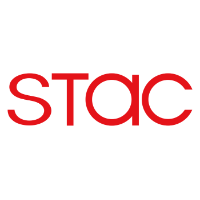Published
- 05:00 am

IBM (NYSE: IBM) today announced it is teaming up with Toronto-based FinTech company Dream Payments to bring new revenue generating mobile payment offerings to financial institutions and merchants in the United States via the IBM Cloud.
IBM and Dream Payments are rolling out Dream Payments Cloud to U.S. financial institutions --a scalable platform that enables financial institutions to provide business customers with secure mobile and digital payment services that help them go to market faster and improve customer experiences. With this platform, which is delivered via the IBM Cloud, financial institutions can avoid investing in the expensive and lengthy IT projects required to build these services in-house. For example, financial institutions can leverage Dream Payments’ offering to rapidly launch solutions that work with emerging payment technologies like mobile wallets, CHIP cards and contactless payments.
Dream Payments turned to IBM because they needed a partner that could help them rapidly deploy cloud infrastructure while maintaining a high level of control and security. With IBM Cloud for VMware solutions, Dream Payments accelerated its cloud infrastructure deployment from three months to just days, while avoiding the cost and complexity of procuring, provisioning and managing new data centers. This deployment also enables Dream Payments to provide financial institutions with the level of control they need to maintain Payment Card Industry (PCI) certifications in the cloud.
“The combination of IBM’s banking and financial services expertise along with IBM Cloud has allowed Dream Payments to build and scale its cloud infrastructure, right down to bare metal hardware access, to maintain bank grade security, PCI compliance and data sovereignty,” said Chad Whittaker, CIO, Dream Payments.
Dream Payments also plans to leverage IBM Managed Security Services including IBM QRadar on Cloud, a network security intelligence and analytics offering to help detect and take action against cybersecurity attacks and network breaches and improve their response to incidents.
“Financial service leaders and FinTechs recognize the need for digital reinvention to compete and win in the banking market,” said Frank Attaie, Vice President of Financial Services, IBM Canada. “IBM provides clients the global cloud footprint and unified architecture they need to navigate regulatory and compliance demands while improving the customer experience.”
Related News
- 02:00 am

Flywire, a provider of international payment and receivables solutions, and Trustly, the European payments company, today announced a new partnership that will integrate Trustly as a preferred payment option for businesses, students and patients in Europe making cross-border payments via the Flywire platform.
With the addition of Trustly, Flywire clients can offer their international customers a fast and easy way to pay directly from their local bank accounts while streamlining payment and receivable reconciliation for administrators. The service will be available across the European Union effective immediately.
According to Datamonitor, 93% of European citizens use their bank accounts as their primary funding source. With new digital authentication methods, the bank account has grown in relevance across European markets for both domestic and international payments. And merchants and service providers are looking to accommodate their customers’ payment habits.
Flywire provides businesses, educational institutions, and healthcare providers with the ability to offer their customers a highly-tailored, international payment experience – customized by country, currency and vertical. Trustly offers cross-border online banking payments straight to and from consumer bank accounts and connects businesses, institutions and consumers by linking together over 3000 banks in Europe. Working together, the companies continue to remove friction from the international payment process and enable their mutual to tailor the payment experience to any customer preference.
“We are very pleased to partner with Flywire, an innovative leader in its field. Now Europeans can pay Flywire-supported businesses, academic institutions and healthcare providers in a simple, safe and convenient way. The digitally minded European consumer will value the possibility to use Trustly’s solution for paying directly from the bank account,” said Oscar Berglund, CEO of Trustly.
“We continue to look for new ways to take complexity and cost out of the international payment process by giving our clients the ability to offer customers their preferred way to pay,” said Mike Massaro, CEO of Flywire. ”Trustly is a highly popular and proven international payment method in Europe that helps our clients meet their customers’ expectations and expand their business potential.”
Related News
- 02:00 am

Payvision, global acquirer and data-driven omnichannel solutions provider, has published the findings of its fifth annual cross-border ecommerce research report, in collaboration with Juniper Research. The paper includes the results of a global survey of various industry players regarding the game-changers, the biggest challenges, the best practices for going cross-border, and much more. When compared to last year's findings, the report reveals a new and exciting context for global cross-border trade. The compound annual growth rate predicted for the next three years for cross-border ecommerce is now 17%, whereas it stands at just 12% for ecommerce overall. Also, over the past 12 months, merchants' attitudes towards cross-border ecommerce have become more positive, with 50% of respondents agreeing and 31% strongly agreeing that cross-border ecommerce is profitable.
If last year mobile commerce was considered to be the biggest cross-border ecommerce growth factor, this year the main driver merchants pointed out was the accelerated development of online marketplaces. 39% of the world's entire ecommerce market will be controlled by marketplaces by 2020. However, the research also discusses a few regulatory items introduced by the European Union that pose major challenges, specifically for international marketplaces. More precisely, the new Payment Services Directive (PSD2) to be introduced from January 2018, requires all merchants operating under a marketplace business model to acquire a payment institution license. The costs and efforts attributed to getting such license will have a massive impact on the business activity of merchants, and the most preferred solution is to partner with a compliant solution provider.
"Acting as a link between buyers and sellers, online marketplaces have created an incomparable level of security and usability for the involved parties that better support merchants in their international expansion," said Cheng Liem Li, CCO, Payvision Group. "However, these operators are currently confronted with regulatory changes predicted to severely impact their business. We are well-equipped to take away the regulatory complexity with SlicePay, our PSD2 compliant payment solution, and enable the marketplace to focus on growing their business across many regions and reaching new consumers."
Furthermore, the latest consumer technology trends such as VR/AR, data science, blockchain technology, artificial intelligence and machine learning together with the Internet of Things (IoT), enable merchants to reach their cross-border customers in a way that was never possible before. Consumers have higher expectations in terms of shopping experience, pushing merchants to constantly reinvent their ecommerce strategies.
Another paper highlight is the comparison between the latest business and geopolitics developments having a massive impact on global cross-border trade. While the UK and the US appear to be looking inward due to great political disruptions such as Brexit and the Trump presidency, China is taking the lead in globalization, heavily investing in the revolutionary One Belt, One Road (OBOR) trade route, which will connect 62% of the world's population.
The white paper Key Business Drivers and Opportunities in Cross-border Ecommerce 2017 brings together in-depth insights into all these issues and the most up-to-date ecommerce statistics in every major region worldwide, being the most comprehensive and largest report of its kind. Download your free copy here.
Related News
- 05:00 am

Nasdaq Inc. (Nasdaq:NDAQ) and Singapore Exchange (SGX) today announced the signing of a collaborative agreement in a move to leverage their strengths as two of the leading listings venues in the U.S. and Asia respectively.
As part of this agreement, Nasdaq and SGX -- who also share a successful, long-term market technology relationship -- are currently exploring the demand among corporates for a concurrent or sequential listing on both exchanges. Nasdaq and SGX are committed to supporting companies that are interested in pursuing this route.
"The business landscape today is borderless," said Loh Boon Chye, CEO, SGX. "Fast-growing Asian companies looking to tap the capital markets can choose to list on SGX on Asian home ground, and embark on a listing on Nasdaq as they expand their business globally. We are excited to partner with Nasdaq in this collaboration to provide value-add to SGX's listed companies who are looking to extend their reach in the capital markets and raise their profile in the United States. Through this partnership, we also look forward to enhancing the awareness of Nasdaq's suite of corporate services in Asia."
"We recognize the unprecedented growth across Asia and its strategic importance in driving the next phase of innovation," said Adena Friedman, President and CEO of Nasdaq. "Nasdaq is proud to be the home exchange to many successful innovators across Asia as well as a strategic partner to SGX, a preeminent exchange in the region. We look forward to helping companies access global capital markets and the broader investment community through this partnership."
Both parties are also reviewing the feasibility of bringing Nasdaq's International Designation program to existing SGX-listed companies that wish to enhance their corporate profile and tap the investor base in the United States. Discussions are also underway to cross-promote Nasdaq and SGX's marketing activities in North America and Asia.
Lastly, SGX has also started exploring the feasibility of streamlining the listing processes of both exchanges to create a more efficient pathway for companies seeking a listing in both venues.
Related News
- 08:00 am

During Sibos 2017, Sberbank and Swift signed a memorandum of cooperation regarding the development and piloting of high-tech products created and promoted by Swift.
The parties agreed to coordinate steps to assess the potential application of blockchain technology in interbank settlement platforms. In particular, Sberbank joined the international group of financial institutions testing the prototype of SWIFT’s DLT (Distributed Ledger Technology) platform, which has been developed as part of SWIFT gpi (Global Payments Innovations). This platform takes advantage of the capabilities offered by a blockchain-based distributed register to verify payment information in real time.
In addition, Sberbank plans to assess the potential of using the SWIFT AMH (Alliance Messaging Hub) system as a technological solution to facilitate the centralisation and optimisation of processing Sberbank Group’s internal and external payment flows and other financial transactions.
Sibos is an annual event organised by SWIFT that features conferences, presentations, panel discussions and exhibits. Sibos is attended by shareholders, members of the SWIFT community, national associations and partners. The event aims to discuss the most relevant issues facing the SWIFT community.
Related News
- 03:00 am

With the EU’s Markets in Financial Instruments Directive II (MiFID II) about to come into force in January 2018, capital markets participants are now urgently taking steps to digest the requirements and meet this latest regulatory challenge.
MiFID II is poised to disrupt the status quo in financial services, demanding firms make major changes to the way they operate, as well as the technology and connectivity infrastructures they depend upon.
Under MiFID II, firms face a significant obligation to collect, store and - when required - present regulators with all the data pertaining to how a given trade was executed. For instance, MiFID II compliance will require highly granular time-stamping of order and transaction data, which firms need to put in place using sophisticated monitoring systems.
To help financial services firms meet these challenges, new tools and value-added services are now rushing to market. “At Interxion, we’re dedicated to facilitating this process,” says Bill Fenick, Strategy and Market Director for Financial Services at Interxion. “We’re fully behind our close-knit financial services community of more than 200 capital market participants as it develops and shares new capabilities. We’re seeing customers ask for various auxiliary services as they begin to feel the heat on MiFID II, such as time-stamping and additional connectivity to further data sources”.
Inside Interxion’s data centres, firms can easily buy and sell new MiFID II capabilities as part of a closely connected community of exchanges, ISVs and service providers. Interxion also recently welcomed an innovative new partner into this community of interest. The US-based Securities Technology Analysis Center (STAC) facilitates an industry consortium that develops benchmark standards for the myriad technologies used in the trading process, including time synchronisation.
Trading firms and vendors from around the world have been working with STAC on standards and software that enables trading organisations to demonstrate to regulators that their time synchronisation, time-stamping and event capture solutions comply with MiFID II’s time rules (RTS 25). Without such standards, regulators would need to involve third-party experts at each firm’s expense to conduct time-consuming investigations, presenting firms with significant costs and the risk that they will be found non-compliant.
“To better support firms that want to use industry standards to demonstrate RTS 25 compliance, STAC decided to establish a footprint in Europe,” comments STAC Director, Peter Lankford. “We chose Interxion’s London data centre campus as our European testing site due to its flexibility and large concentration of financial customers”.
Live now, STAC’s test lab in Interxion’s London campus is currently conducting research on vendor equipment, such as clocks and capture devices. With advanced equipment for testing such systems now in place, STAC’s latest test site will bring financial firms information that’s critical to making the right choices on the road to MiFID II compliance.
Related News
- 09:00 am

Rambus Inc. (NASDAQ: RMBS) has teamed up with eftpos, the Australian domestic debit network, to help support secure transactions with Apple Pay for users in Australia. Through integration with the Rambus Token Service Provider (TSP) technology, eftpos is able to support Apple Pay, the easy, secure and private way to pay. By utilizing tokenization, this TSP technology replaces sensitive information with unique reference numbers and is more secure than traditional plastic cards.
“With millions of eftpos-only debit cards distributed across Australia by its members, eftpos is the country’s most popular debit payment method,” said Chakib Bouda, CTO of the Rambus Payments Division. “This partnership allows more than a million consumers to enjoy secure mobile payments using Apple Pay, leveraging our proven EMV tokenization software for trusted transactions.”
The Rambus TSP technology replaces traditional primary account numbers (PAN) with unique identifiers called payment tokens. By integrating the Rambus tokenization software, participating eftpos members can use eftpos debit cards with Apple Pay for increased protection.
“Our partnership with Rambus gives us the ability to accelerate our secure mobile payments strategy and support Apple Pay,” said eftpos Acting CEO, Paul Jennings. “We are excited to move from our traditional card based payment method into mobile, offering our members in Australia the opportunity to benefit from the convenience and security of Apple Pay.”
Security and privacy are at the core of Apple Pay. When customers use eftpos debit cards with Apple Pay, the actual card numbers are not stored on the device, nor on Apple servers. Instead, a unique Device Account Number is assigned, encrypted and securely stored in the Secure Element on your device. Each transaction is authorized with a one-time unique dynamic security code.
Related News
- 03:00 am

One of the most important events in the world of payments and financial services, Money20/20 will start on October 22nd in Las Vegas. Latin American local payments processor EBANX Payments––that processes payments for global companies such as AliExpress, Wish, Udacity and other major global brands––will have nine Latin Americaexperts in attendance at Booth 1657. Companies eager to start or increase their sales in Brazil, Mexico, Argentina, Chile, Colombia, and Peru will be able to talk to them in person at the event.
Attendees will be able to discover and learn more about EBANX’s extensive services and the Latin American payments landscape, which works differently than other regions'. For instance, shoppers in Latin America like to pay for online purchases using local cash payment methods. As strange as it may sound, generating an OXXO voucher online and then personally going to an OXXO convenience store to pay for it with cash is completely common and an expected payment option for e-commerce in Mexico. The same goes for theboleto bancário, or boleto for short, in Brazil, and the Vía Baloto in Colombia.
By offering local payment methods such as the OXXO voucher, boleto bancário, and the Vía Baloto it is possible to reach the unbanked Latin American consumers, which represents 49% of the population in Latin America, according to 2015 data from World Bank reports.
Even Latin American citizens with bank accounts, who could access debit and credit cards, choose these cash payment methods. A survey conducted by EBANX in July of this year regarding the usage of boleto bancário in Brazil showed that 71% of shoppers who paid for online cross-border purchases via this payment method had personal checking accounts. Brazilians trust, place their confidence and have experience paying with the boleto bancário, since many utility bills are paid with this solution. By not offering local payment methods, global merchants are missing out on a valuable consumer base in Brazil and throughout the region.
Related News
- 04:00 am

BFC Bank, a specialised bank focused on international payments and cash management services, completed its mobilisation process on 11 October 2017 and is to increase its corporate banking services.
A wholly owned subsidiary of BFC Group Holdings (BFC Group), BFC Bank received authorisation by the Prudential Regulation Authority (PRA) and Financial Conduct Authority (FCA) (FRN 716167) in September 2016. It has successfully fulfilled all the necessary regulatory conditions to become operational.
After an initial ‘soft launch’ for selected companies within its Small to Medium-sized Enterprise (SME) and Payment Service Provider (PSP) target markets, the bank goes live in early 2018. SMEs and PSPs can register interest in opening an account on the bank’s website: www.bfcbank.co.uk With an ethos of fairness and transparency, BFC Bank offers low-cost basic corporate banking products with a strong emphasis on international transactions and multi-currency cash management as well as UK domestic payments.
BFC Bank’s Chief Executive Officer, David Price, commented: “The finalisation of the mobilisation stage is a significant milestone for BFC Bank. We look forward to becoming operational in early 2018 as full members of the UK Faster Payment Scheme. Our vision is to provide cost-effective international payment, foreign exchange and cash management solutions to SMEs and PSPs. It is exciting to lead this mission to become the ‘go-to’ partner for SMEs and PSPs.”
Related News
- 18.10.2017 -- 03:00 pm









